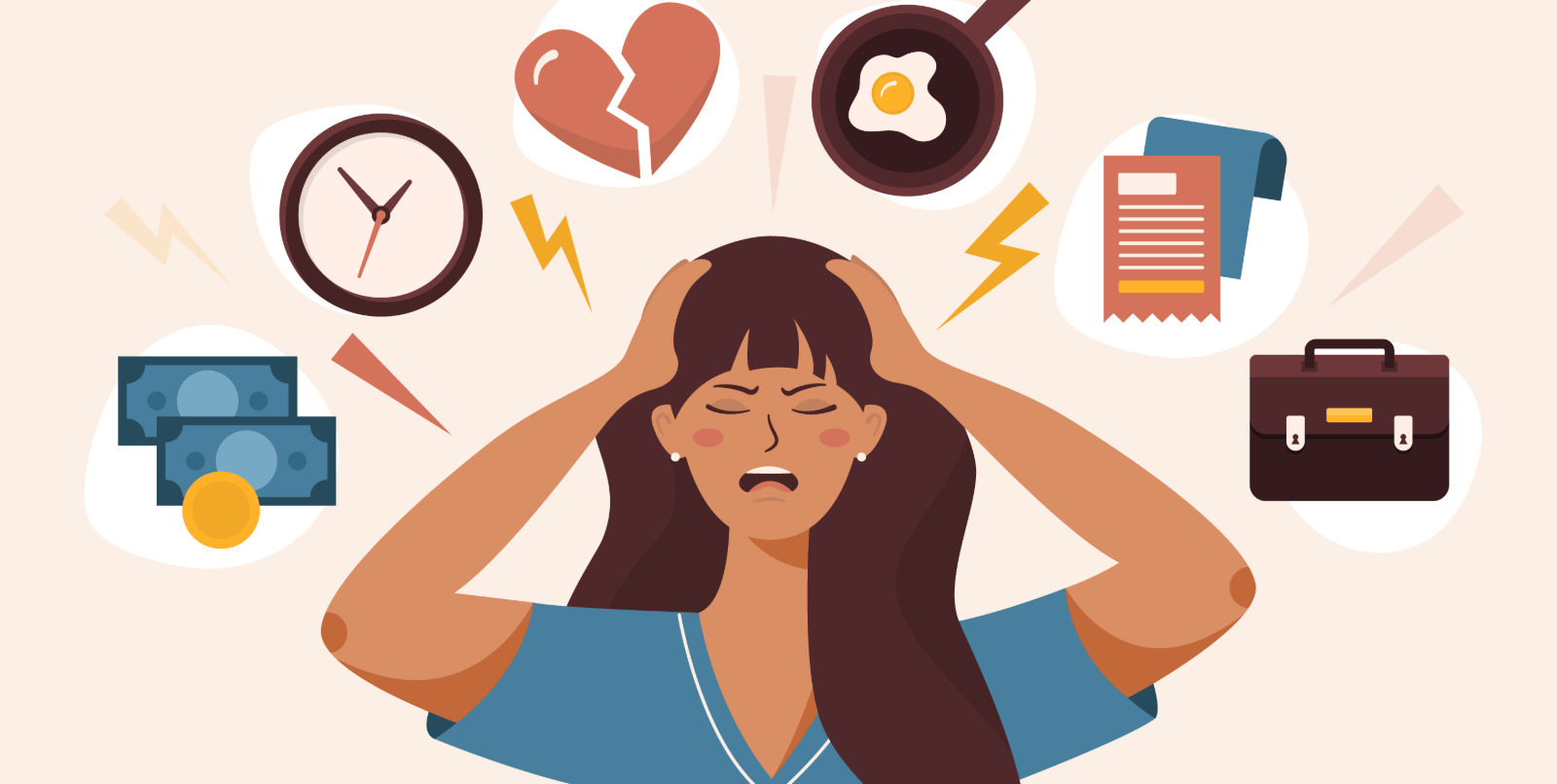How to Help Your Teen Through a Panic Attack
Panic attacks can be a difficult condition to deal with, especially for teenagers. As parents, our job is to be supportive and comforting during a panic attack. However, knowing what to do and say to calm and motivate them can be challenging. In this post, we will discuss some ways to help your teenager through a panic attack.
Know the Signs of Panic Attack: The first step to helping your teenager is recognizing the symptoms of a panic attack. Symptoms can include shortness of breath, rapid heartbeat, sweating, dizziness, and a feeling of losing control. Once you understand the signs, you can be better prepared to help your teen through the experience.
Encourage Deep Breathing: Encourage your teen to take deep, slow breaths when experiencing a panic attack. Holding a deep breath for several seconds and then slowly exhaling will help to calm their body.
Use Positive and Calming Statements: Your words can make a big difference in helping your teen through a panic attack. Speak in reassuring phrases such as “it’s going to be okay”, “I’m here for you”, “you can get through this”. Be soft-spoken and calm even in a difficult situation.
Distract and Divert Their Attention: Diverting your teenager’s attention to something else can help them focus their mind somewhere other than what is causing the panic attack. Suggest they read a book, listen to music, or watch a show. However, make sure it’s something calming and not overly stimulating.
Seek Professional Help: If your teenager is experiencing frequent panic attacks, it’s essential to seek professional help. This could be in the form of a therapist, counselor, or support group. They can teach techniques to cope with anxiety and give a better understanding of what is causing the panic attack.
Being patient and supportive of your teenager when they’re experiencing a panic attack is essential as a parent. By understanding the signs, encouraging deep breathing, using positive and calming statements, distracting them, and seeking professional help, you can help them through this challenging situation. Remember, listening and empathizing with your teenager is essential in helping your teenager through a panic attack.
You commonly feel a deep concern when you witness your teenager suddenly grappling with symptoms you can’t readily identify. Panic attacks can be particularly troubling, not only for the range of potential physical and emotional symptoms they provoke — erratic heartbeat, hyperventilation, sweating, and a nauseous stomach send distress signals to anyone — but because they can be challenging to recognize. For instance, it’s not just that your teen is suddenly feeling anxious; the fear can build until it seems almost like an invading force, a harrowing presence that drives them to a momentary feeling of being totally out of control. It’s a distressing experience that can leave your child feeling alone, frightened, and unsupported. But you can help. With the proper guidance and support, your teen can start to take back control and manage panic attacks in a way that empowers them to live their lives to the fullest.
Panic attacks usually come with the following symptoms:
- a pounding heart
- sweating
- weakness
- dizziness
- numbness
- sense of terror
- chest pains
- breathing difficulties
- having chills
After a Panic Attack
Once an attack is over, learn from it. In fact, each attack you have provides information about how to end them. Here are some tips for using attacks to heal versus letting them bring your teen down:
Become more aware of any patterns associated with your panic attacks: It’s never easy to see our loved ones suffering from anxiety attacks. But if you’re a parent to a teenager who’s been experiencing such episodes, there are ways you can lend a helping hand. One crucial step is to become more aware of what’s triggering them. Observing patterns and identifying possible triggers can go a long way in preventing future attacks. Keeping a journal is a great tool to help you in this regard. You can jot down the date, time, and other relevant information when your teen has an attack. Or better yet, have your teen keep a journal and discuss it with them regularly. As you gain more insight into what’s causing their anxiety, you can tailor your approach to provide them with the support they need.
Uncover the purpose of the attack: Panic attacks are a debilitating condition, leaving sufferers feeling both helpless and out of control. However, psychotherapists Laurel Hulley and Bruce Ecker have discovered that identifying their purpose is the most effective way to treat these attacks. According to Hulley and Ecker, understanding why someone is having a panic attack can open the door to insight. For example, someone may be experiencing panic attacks because, deep down, they believe that bad experiences are an integral part of life. By having a panic attack, they are inadvertently fulfilling that flawed thinking. It may seem simplistic, but sometimes these unconscious beliefs can profoundly impact our behavior. People can find lasting relief from their panic attacks by identifying and addressing these hidden beliefs.
Talk to a mental health professional: Dealing with panic attacks and pre-attack anxiety can be incredibly overwhelming and isolating. It’s important to remember that you don’t have to go through it alone. If you feel like you’re struggling to handle it all alone, don’t hesitate to reach out to an adult you trust. They can help connect you with a mental health professional specializing in treating anxiety and panic attacks. Together, you can develop coping techniques and strategies to help you feel more in control and empowered. Remember, seeking help is not a sign of weakness. It takes incredible strength to acknowledge when you need support and take proactive steps to improve your mental health.

5 Coping Skills for Teens and Kids with Panic Attacks
Panic attacks can be terrifying for anyone, but when they happen to children or teens, they can be especially concerning for parents and caregivers. The sudden onset of intense anxiety and physical symptoms like a racing heart and sweating can be confusing and alarming. It can feel like your child went from being just fine to being in crisis within a matter of seconds. Unfortunately, panic attacks can happen without a clear trigger, making them even more daunting to deal with. It’s important to remember that panic attacks are a treatable condition and that seeking professional help is essential in helping your child manage their symptoms and find relief.
Panic attacks can be a scary experience, particularly for kids and teens who may not understand what’s happening or how to manage their emotions. While relaxation and coping skills for anxiety can help manage these attacks, sometimes they may not be enough. That’s why young people need to have access to a range of techniques they can use to deal with panic attacks when they happen. In this post, we’ll explore a few strategies children and teenagers can use to make their panic attacks less intense and frequent. From breathing exercises to mindfulness techniques, a range of approaches can help young people better control their emotions and manage their panic attacks with greater ease.
Panic Coping Skill #1: Use an App to Get Grounded
One common way for kids with anxiety to calm their symptoms is by practicing relaxation techniques, such as visualization and deep breathing. However, for some kids, panic attacks can be so overwhelming that it becomes difficult to focus on anything else. Despite their best efforts, the physical sensations of panic remain the main focus, leading to further escalation of anxiety. While relaxation techniques can still be helpful, it’s essential to acknowledge that they may not work for everyone. Instead, exploring other coping strategies that can better suit individual needs and situations may be more beneficial.
For children who struggle with anxiety, grounding techniques can be a powerful tool to help them better manage their symptoms. By redirecting their focus away from the anxiety and toward a specific external focal point, these techniques can help kids stay present and engaged in the moment. Grounding techniques often involve connecting with the senses, such as taking a deep breath and focusing on the feeling of air entering and leaving the body or paying close attention to their environment’s smells, sounds, and textures. By regularly practicing grounding techniques, children can learn to stay centered and calm, even in stressful or overwhelming situations.
Anxiety and panic attacks can be overwhelming, especially for kids still learning to manage their emotions. Thankfully, there’s an app designed to help. What’s Up? is a free app that provides various options for managing anxiety, including positive affirmations and breathing techniques. One of the most helpful features is the “Get Grounded” section, which guides kids through simple grounding activities that can be done anywhere. By prompting users to name five items in a category, this feature helps to shift the focus from anxiety to the task at hand, making it easier to regain control and soothe oneself. With its various anxiety-reducing tools, What’s Up? is a valuable resource for kids who need extra help managing their emotions.
Panic Coping Skill #2: Squeeze an Ice Cube or Take a Hot Shower
Panic attacks can be incredibly overwhelming for anyone, especially kids who may not have the tools or coping mechanisms to navigate their emotions. Fortunately, engaging with any of the five senses can be a powerful way to help ground kids and bring them back to the present moment. Experts often recommend using temperature sensations, such as heat or cold, to help children break the cycle of panic. From squeezing an ice cube to seeking refuge in a hot shower, simple actions can go a long way in helping kids manage their overwhelming emotions. By simply stepping outside into the cool night air for a few minutes, kids can find a small place of refuge amid the chaos of a panic attack. These techniques can work wonders in helping kids feel more in control and grounded in times of stress.
If you’re a parent whose child struggles with panic attacks, you know how important it is to find effective coping mechanisms. At the same time, it may be more challenging to use grounding skills when out in public, but small actions can still make a big difference, such as splashing cool water on the face or seeking out a drinking fountain. However, if you find grounding techniques helpful for your child, you may want to consider enrolling them in an online coping skills course. With easy accessibility and tailored options, online courses like these can be an excellent resource for you and your child.
Panic Coping Skill #3: Sniff Some Lavender
Our sense of smell is a powerful tool that often goes underappreciated. It turns out that many of us have strong emotional reactions to certain scents, which means that we can use this sense to help ground ourselves when we’re feeling anxious or overwhelmed. While research suggests that lavender is particularly effective in soothing anxiety, any calming scent will do the trick – whether that’s vanilla, chamomile, or something else entirely. The key is to shift our brain’s focus away from the panic response and onto a more soothing and pleasant experience. So next time you’re feeling overwhelmed, take a moment to breathe in a calming scent – it might just make all the difference!
If you or your child frequently experience panic attacks, having a coping tool on hand can be helpful. Something as simple as a bottle of essential oil or a rollerball container of fragrance can provide a sense of calm and relaxation at the first sign of an attack. Of course, if your child can’t bring such items to school, you might consider an alternative, such as scented hand lotion. Some children even find it helpful to keep a cotton ball infused with a favorite scent on hand as a means of coping. The key is to find a scent that provides comfort and reassurance, whether it’s lavender, peppermint, or something else entirely. With some preparation and forethought, it’s possible to effectively manage panic attacks and anxiety.
Panic Coping Skill #4: Cut Caffeine
Many of us can’t imagine starting our day without that energizing cup of coffee. While it’s true that caffeine can give us a quick boost, it’s also essential to understand the potential impact it can have on our anxiety levels. For preteens and teens still developing emotional regulation skills, it’s essential to be mindful of caffeine intake. Overconsumption of caffeine can lead to increased heart rate, restlessness, and agitation, exacerbating anxiety. While a pumpkin spice latte may be a delicious indulgence, it’s important to consider moderation as part of a healthy lifestyle. By knowing the link between caffeine and anxiety symptoms, we can make more informed choices about our daily coffee habits.
Most of us have experienced the energizing effects of coffee or soda at some point. While these beverages provide a quick boost, they can also cause jitters and palpitations when consumed excessively. Surprisingly, the impact of caffeine on our bodies doesn’t stop there. People who already struggle with anxiety may find their symptoms worsened by high doses of caffeine, even experiencing panic attacks in some cases. While caffeine isn’t a direct cause of anxiety, it’s crucial to be mindful of how much we consume and how it affects our bodies. By being aware of our own reactions, we can make informed decisions about our caffeine intake and prioritize our anxiety management.
While opting to cut out coffee and soda forever may not be a surefire way to cure anxiety, parents must be mindful of their child’s caffeine intake. While a bit of caffeine won’t hurt, too much can lead to an over-caffeinated feeling that may cause anxiety. Children need to know that this feeling can be typical and even expected when drinking caffeinated drinks. However, for children who are prone to panic or anxiety, that feeling of jitters can lead to a panic attack if they focus too much on their body’s sensations. So it’s always a smart move to keep a watchful eye on their caffeine intake and make sure to remind them that it’s okay to feel a little jittery but also to recognize when it’s too much.
Coping Skill #5: Remember This Will Pass
Panic attacks can be a frightening experience for anyone, especially children and teens who may not understand what is happening to them. However, changing your mindset about panic attacks can be a game-changer in managing them. Children and teens must know what happens during a panic attack to feel reassured and safe. This knowledge can help reduce anxiety around future attacks and prevent them from happening altogether. Accepting that panic attacks may happen from time to time can actually reduce the likelihood of them occurring. So, if you or someone you know is experiencing panic attacks, try changing your mindset and understanding what’s happening during an attack for a more reassuring and peaceful experience.
Children can feel incredibly overwhelmed when they start experiencing the symptoms of a panic attack. However, one of the best things they can do is add a name to their feelings. Identifying that they’re having a panic attack can create a sense of distance and make the experience feel less all-consuming. They can also remind themselves that these feelings will eventually pass and that they won’t last forever. Another helpful strategy is to set a timer or keep an eye on the clock so they can predict when their body’s adrenaline surge will start to fade away. By using these techniques and understanding how their body is reacting, children can start to take control of their panic attacks and overcome them.

As a parent, it can be challenging to watch your teen go through a panic attack and not know what the best way is for you to help them. However, it is essential to remember that they will need support when they are dealing with their anxiety. It is essential to be patient and understanding while reassuring them that you are there for them and willing to listen. Additionally, offering calming activities such as yoga or meditation may help reduce their emotional tension. Panic attacks should also not be ignored. If the problem persists, it could be beneficial to consult with a mental health professional who can provide appropriate strategies for better coping techniques. Taking proactive steps towards coping with anxiety can empower teens to take control of their emotions instead of allowing panic to get in the way of their everyday life. With the right combination of patience, support, understanding, and implementation of calming activities, parents can unite with their teens in providing practical ways for those struggling with their experiences of anxiousness or fear.











